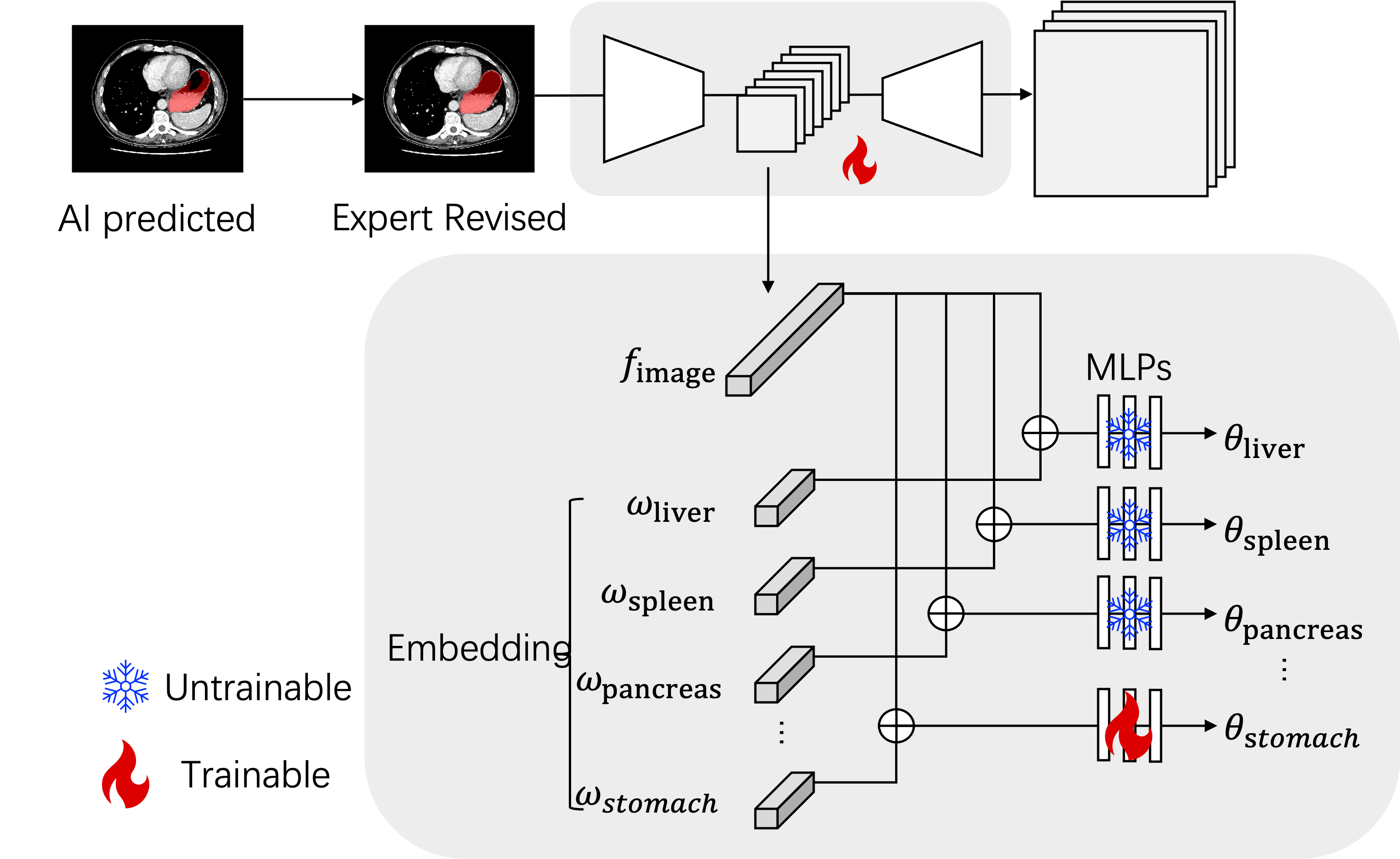Leveraging AI Predicted and Expert Revised Annotations in Interactive Segmentation: Continual Tuning or Full Training?
Interactive segmentation, an integration of AI algorithms and human expertise, premises to improve the accuracy and efficiency of curating large-scale, detailed-annotated datasets in healthcare. Human experts revise the annotations predicted by AI, and in turn, AI improves its predictions by learning from these revised annotations. This interactive process continues to enhance the quality of annotations until no major revision is needed from experts. The key challenge is how to leverage AI predicted and expert revised annotations to iteratively improve the AI. Two problems arise: (1) The risk of catastrophic forgetting--the AI tends to forget the previously learned classes if it is only retrained using the expert revised classes. (2) Computational inefficiency when retraining the AI using both AI predicted and expert revised annotations; moreover, given the dominant AI predicted annotations in the dataset, the contribution of newly revised annotations--often account for a very small fraction--to the AI training remains marginal. This paper proposes Continual Tuning to address the problems from two perspectives: network design and data reuse. Firstly, we design a shared network for all classes followed by class-specific networks dedicated to individual classes. To mitigate forgetting, we freeze the shared network for previously learned classes and only update the class-specific network for revised classes. Secondly, we reuse a small fraction of data with previous annotations to avoid over-computing. The selection of such data relies on the importance estimate of each data. The importance score is computed by combining the uncertainty and consistency of AI predictions. Our experiments demonstrate that Continual Tuning achieves a speed 16x greater than repeatedly training AI from scratch without compromising the performance.
PDF Abstract

